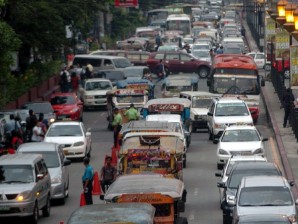
Petitioners include the Provincial Bus Operators Association of the Philippines (PBOAP), Southern Luzon Bus Operators Association, Inc. (SOLUBOA), Inter-City Bus Operators Association (INTERBOA), City of San Jose Del Monte Bus Operators Association (CSJDMBOA).
In their 24-page plea, the petitioners through lawyer Leonides Respicio said the implementation of Department Order 118-12 the fixing of wages for bus drivers and conductors “could lead to their ultimate corporate demise.”
“The bus operators depend on their income solely on passenger fares that are not flexible enough to cope with changes in compensation schemes already in place,” the petition stated.
“The government could not, and did not even care to provide a safety net or subsidy in case the scheme fails…”
They said a temporary restraining order is necessary until they can arrive at a solution to prevent road accidents.
The DOLE order will do away with the so-called “boundary” system wherein a driver’s earnings for the day depend on what’s left after giving a specific amount to the owner of the vehicle he drives. It is often seen as a factor why bus (and also jeepney) drivers commit traffic violations—from overspeeding to overstaying at stops—in order to get as many passengers as they can.
The fixed payment scheme sets a minimum wage, while the performance-based payment will be on a rate mutually agreed upon by the operators and the workers.
Under the new wage system, the drivers and conductors “should not earn lower than what they presently receive under the straight commission-basis. This is following the nondiminution principle,” she explained.
The order also calls for company safety and health programs, including measures against smoking, drugs, and the spread of AIDS, as well as antisexual harassment and disaster risk-reduction programs.
The DOLE arrived at the scheme due to the prevalence of road accidents involving busses who resorted to several schemes to gather passengers because drivers and conductors are being paid on pure commission basis.
Respondents in the case include the DOLE and the Land Transportation, Franchising Regulatory Board.


